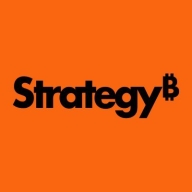

Tableau Enterprise and MicroStrategy both compete in the business intelligence solutions category. Tableau Enterprise might be seen as having an advantage in data visualization and integration ease, while MicroStrategy shines in scalability and comprehensive enterprise solutions.
Features: Tableau Enterprise is distinguished by its rich graphical representations, ease of integrating with numerous data sources, and powerful drill-down capabilities, allowing users to create dynamic and interactive reports. MicroStrategy, however, offers robust scalability and stability, and a comprehensive suite tailored for complex data environments.
Room for Improvement: Tableau Enterprise needs improved performance for large datasets, more cost-effective licensing, and enhanced collaborative features. MicroStrategy could enhance its visualization and dashboard creation processes and user interfaces, while also addressing its pricing complexity.
Ease of Deployment and Customer Service: Tableau Enterprise provides flexible deployment options across on-premises and various cloud environments, supported by excellent customer service and a strong user community. MicroStrategy offers controlled environments suitable for large enterprises but requires more intensive training.
Pricing and ROI: Tableau Enterprise's pricing is perceived as high for small to medium businesses but has become more competitive, with rapid deployment driving ROI. MicroStrategy, with a complex pricing model, offers features and scalability that can yield better long-term returns, making it cost-effective for large organizations.
This saves a significant amount of time, particularly for reports that would have needed around fifty people.
The ROI of using Tableau extends to its seamless integration across various platforms, as it's from Salesforce and thus not limited to any specific cloud provider.
Tableau is saving me time, money, and resources, which I would rate as ten.
I would rate the technical support from MicroStrategy as nine out of 10.
They provide quick email and phone responses and have Thai-speaking personnel.
There should be consistent standards for all users.
The technical support for Tableau is quite good.
MicroStrategy's scalability is good, as it has the possibility to read a lot of data and works fine with all the information that we have.
Tableau is easy to use across various dimensions, whether on-premises or on the cloud.
The solution is fully scalable and performs well even with large datasets, provided there is proper supporting hardware.
Tableau is easy to scale.
I would rate the stability of MicroStrategy as nine out of 10.
The application hangs after continuous use due to the buildup of cache.
I rate the stability a five or six because Tableau updates very often with new versions or patches.
Organizations that are well-established and have more money can afford MicroStrategy, but startups and mid-level organizations who do not have this much budget have to opt for other cheaper tools.
MicroStrategy could learn from Power BI's user-friendly interface.
I would appreciate improvements in MicroStrategy related to integration or sharing features with Power BI.
We cannot send the entire Excel file reports via email within Tableau.
The product owner should enhance its benefits or clarify its role.
It sometimes requires extensive investigation to determine why the data does not appear correctly.
Power BI as a much cheaper alternative.
A license for 150 users costs around $17,000 USD per year.
Looker is known to be quite expensive.
It's important because with MicroStrategy we can manage all our cubes and show data to our clients.
The MicroStrategy interface is not as good as Power BI, especially concerning the user-friendly aspects.
The most effective features of MicroStrategy for data analysis in my experience are the security, the metadata management, and the administration, along with the options of different workarounds available to accommodate different types of requirements.
A significant feature for me is the real-time connection to data sources because it effectively manages large data sets.
Tableau serves as a stable dashboarding tool for higher management, aiding in quick decision-making.
Building hyper extracts and visualization capabilities make Tableau a robust tool for data analysis.
| Product | Market Share (%) |
|---|---|
| Tableau Enterprise | 6.7% |
| MicroStrategy | 1.3% |
| Other | 92.0% |

| Company Size | Count |
|---|---|
| Small Business | 37 |
| Midsize Enterprise | 26 |
| Large Enterprise | 100 |
| Company Size | Count |
|---|---|
| Small Business | 117 |
| Midsize Enterprise | 67 |
| Large Enterprise | 184 |
Company: Founded in 1989, MicroStrategy (Nasdaq: MSTR) is a leading worldwide provider of enterprise software platforms. With direct operations in 26 countries worldwide and approximately 2,000 employees, our mission is to provide enterprise analytics, mobility, and security platforms that are flexible, powerful, scalable and user-friendly. To learn more, visit MicroStrategy online, and follow us on Facebook and Twitter.
Product portfoilio:
MicroStrategy 10 Secure Enterprise™ empowers leading organizations to analyze vast amounts of data and distribute actionable business insight throughout an enterprise through two distinct offerings: MicroStrategy Analytics™ and MicroStrategy Desktop™. MicroStrategy Analytics delivers reports and dashboards, and enables users to conduct ad hoc analysis and share insights anywhere, anytime, via mobile devices or the Web. It also combines the agility and productivity of self-service visual data discovery with the security, scalability, and governance features of enterprise-grade business intelligence. MicroStrategy Desktop is a standalone, on-premise visual data discovery tool designed to enable business users to analyze and understand their data. MicroStrategy Mobile™ enables organizations to rapidly build custom business applications that deliver analytics combined with transactions, multimedia, and custom workflows to mobile devices. MicroStrategy Secure Cloud™ combines all of the enterprise analytics, mobile, and security features in MicroStrategy 10 Secure Enterprise with powerful and scalable data integration, validation, and warehousing services — all delivered in an environment where organizations can deploy transformational analytics applications in minutes.
Usher, MicroStrategy’s breakthrough security solution, is a powerful mobile security platform designed to dematerialize traditional forms of identity verification (such as passwords, tokens, and physical badges) and replace them with a single mobile identity badge that is cryptographically linked to its owner’s smartphone and dynamically linked to an enterprise’s existing identity repositories. Usher works on standard Android and iOS smartphones, and also boasts an Apple Watch™ integration.
Tableau Enterprise offers powerful features for creating interactive visualizations, dashboards, and maps, including drag-and-drop functionality and easy integration with multiple data sources, promoting real-time collaboration and self-service analysis.
Tableau Enterprise stands out with its ability to create user-friendly, interactive visualizations, making it pivotal for business intelligence applications. Users benefit from its seamless connectivity and advanced analytical functions, facilitating data blending and storytelling. Despite a complex learning curve and high licensing costs, its features like geospatial analysis and efficient content distribution drive its indispensable value for data-driven insights. Enhancements in predictive analytics and support integration with machine learning tools further its capabilities across industries.
What are the most valuable features?Tableau Enterprise is widely used for business intelligence, supporting industries like healthcare, telecommunications, and finance. Organizations utilize it to analyze performance indicators, operational insights, and financial analytics, enhancing decision-making through interactive reports and real-time data integration.
We monitor all BI (Business Intelligence) Tools reviews to prevent fraudulent reviews and keep review quality high. We do not post reviews by company employees or direct competitors. We validate each review for authenticity via cross-reference with LinkedIn, and personal follow-up with the reviewer when necessary.